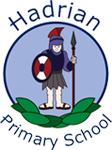Computing
Computing Curriculum Rationale
At Hadrian Primary School, we value Computing. WE ARE DIGITAL NOMADS, WE ARE COMPUTER SCIENTISTS! We want our children to love computing. We want them to have no limits to what their ambitions are and grow up wanting to be software engineers, video game designers, web developers or IT consultants. We want them to embody our core values. We value our vision - Being unique: believing, achieving, succeeding together. The computing curriculum has been carefully crafted so that our children develop their digital capital. We want our children to remember their computing lessons in our school, to cherish these memories and embrace the opportunities they are presented with! Recently, we became an EdTech 50 school. This meant that we were recognised for our teaching and learning in computing and were invited down to London. We were described in the EdTech 50 brochure as 'The window to the world' as we believe we can use our computing skills in every subject and it enables us to share our fabulous work outside of the classroom. Bringing computing alive is important at Hadrian Primary School as well as keeping children safe. We follow the Education for a Connected World and use 'My Online Life' to enable children with the knowledge they need to stay safe online.

Intent
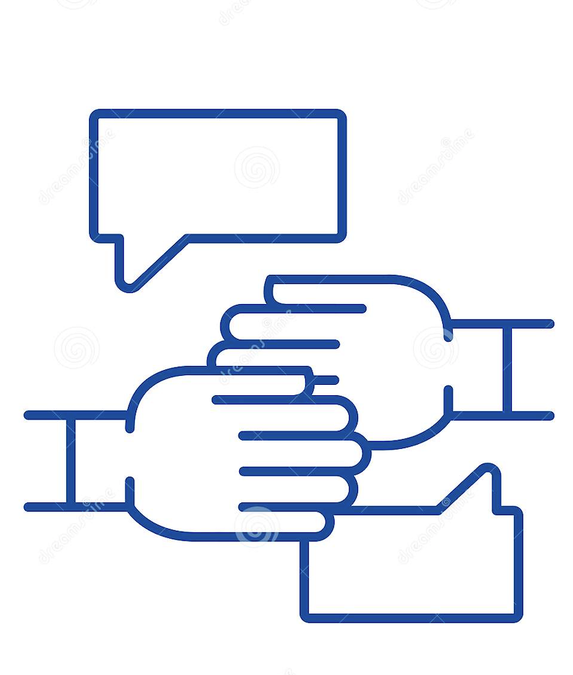
All pupils at Hadrian have the right to have rich, deep learning experiences that balance all the aspects of computing. With technology playing such a significant role in society today, we believe ‘Computational thinking’ is a skill children must be taught if they are to be able to participate effectively and safely in this digital world. A high-quality computing education equips pupils to use creativity to understand and change the world. Computing has deep links with mathematics, science, and design and technology, and provides insights into both natural and artificial systems. At Hadrian Primary, we teach all three elements of computing: Computer Science, Information Technology and Digital Literacy in which pupils are introduced to a wide range of technology, including laptops, iPads and CTouch boards, allowing them to continually practice and improve the skills they learn. This ensures they become digitally literate so that they are able to express themselves and develop their ideas through information and computer technology– at a level suitable for the future workplace and as active participants in a digital world.

At Hadrian Primary School we value the contribution that computing can make for the benefit of all pupils, staff, parents, governors and the wider community. Our aim is to provide a technology rich environment which allows pupils to gain the confidence and ability to prepare them for the challenge of a rapidly developing and changing technological world. We want our children to use the vibrancy of our great city to learn from other cultures, respect diversity, co-operate with one another and appreciate what they have. We achieve this by providing a strong SMSC curriculum, with British Values and our core values placed at the heart of everything we do. This often feeds into the computing curriculum.
We have 3 aims that underpin our vision:
- To develop the Computing skills of everyone in school so they are confident, safe and independent.
- To provide interactive learning for adults and children through a range of current technologies.
- To encourage independent learning for life.

For example, during lockdown we reached out to parents to ensure that our children were provided with the best possible teaching and learning. We ensured that our staff had the relevant CPD and trained the children in the use of Google Classroom. We were then able to teach our children online throughout lockdown so that they did not miss out on learning. We also worked well with parents who struggled with technology and ensured that the help and guidance was there for them when needed. Because of this we were invited to join the EdTech Demonstrator team with the DfE and LGFL. Here we then went on to train over 40 schools, nationwide, in the use of technology in remote learning and in the classroom. We taught our children the valuable lessons of staying safe online and encouraged them to be independent in their learning and as creative as they believed they could be with using technology.
Implementation
At Hadrian Primary School we believe that in order for our children to leave as 'Digital Leaders' then the teachers must lead by example. For example: teachers at Hadrian must complete CPD training on computing as well as becoming an Apple Teacher. We are proud to say that all teachers at Hadrian Primary are now Apple Teachers and are all capable of using iPads and technology equipment. By completing training on how to use computers, various equipment and iPads, teachers now feel confident in teaching the next generation of Digital Leaders.
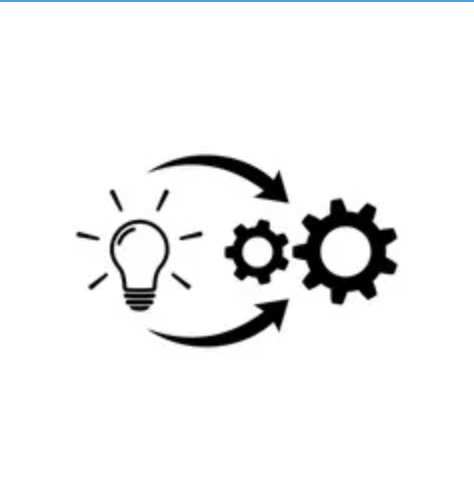

The computing co-ordinator also completes training with all staff on relevant APPs, or new programmes, to ensure that staff are confident in their use of technology, this includes support staff and 1:1 staff as we feel all of the staff will benefit from this computational knowledge.
At Hadrian Primary School, we have worked hard to perfect our curriculum to meet the needs of our children. As children grow in basic skills with technology, we wanted to make sure that they were given a challenge. The NCCE framework is perfect for us as it develops the basic skills of the children and it helps us to ensure that all of the children leave Hadrian with the skills in which they need for the future. We have used this to create long term plans for each year group so that teachers can see the progression from previous learning and what will be expected in the future.
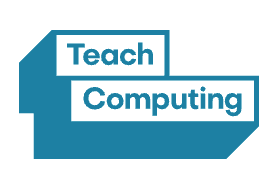
Each unit builds on the skills which have been previously taught and enables the children to build their knowledge in computing as they move up the school. This enables children to become advanced in the skills in computing across the three aspects of computing and it also enables teachers to build on prior knowledge. Children must master all of those skills in their year group in order to progress to the next stage - this enables us to keep high standards at Hadrian for computing.
We also follow 'My Online Life' which covers all of the units for Education for a Connected World. Here the children are taught about online safety from nursery to Year 6. This is a priority for us as a school, as we believe online safeguarding is crucial and our children need to be educated in depth in this. This is then revisited every lesson and monitored by the computing coordinator.
For example our children can confidently talk about how to stay safe online and are able to create presentations for assembly for Internet Safety Day. Children understand that they can talk to an adult if they are worried about anything and are able to share this information and knowledge with their parents. We are also setting up parent workshops, which were delayed due to the pandemic, where we will eventually reiterate this message to parents.

Here at Hadrian we also believe that computing can enhance our learning and teaching and so we try to use computing in as many subjects as possible. Not only do we ensure that our basic skills are paramount to our computing skills, but we ensure that we can, as teachers, enhance our teaching by using technology in all aspects of the curriculum. By allowing technology to be used across the curriculum, children can see the benefits of becoming computer literate for the future. By implementing computing this way we also enable the children to show how creative they can be (as this is a huge part of Hadrian School). Children may create a news report in English with the purpose being that they will make a real report using iMovie and perform their writing; children may explain how something works in science by creating a Spark Video and uploading this to our school website. Ultimately we are trying to implement computing not only into our computing lessons, but across every aspect of our curriculum at Hadrian and into every day life.

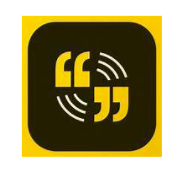
For example, we have created science videos using Spark Video, which develops our scientific investigation skills as well as our media skills, to explain scientific experiments. We have used the green screen and Do Ink app to create a WWI trench background where we have written letters home in role as a WWI soldier. We have set up Google Classrooms so that the children can complete homework, but they can also communicate with each other, and staff in a safe space. Children learn about communication and learn to email in KS1. We have also used our skills to create poems about Muhammad Ali. We used Spark Video to perform our writing using expression and volume. The children took ownership of this and blew us away with their skills. We then decided to be 'The window to the world' and we used the powers of social media to send our videos and poems to Muhammad Ali's daughter and to our delight and surprise she replied and let us know that she was thrilled with our videos. This gave the children a purpose for their work - not only would teachers have the joy to see this in the classroom, but EVERYONE in the world would have access to it.
To achieve our 3 aims we will:
- Use ICT where appropriate to motivate and inspire pupils and raise standards across the curriculum.
- Develop pupil’s computing skills, knowledge, understanding and capability through taught Computing lessons and to provide varied opportunities for pupils to apply and consolidate their computing capability across all curriculum contexts.
- Assess computing systematically with a focus on pupil’s skills and future targets.
- Encourage learning out of school hours and promote links with parents and the wider community.
- Use technology to support all pupils to ensure they are able to reach their full potential, regardless of gender, disability or ethnicity.
- Make children aware of inappropriate use of technology and how to use it safely and responsibly.
- Take responsibility as staff for our own continuing professional development in the Computing curriculum and use of technology in the classroom.
- Ensure our resources are up to date, easily accessible and sustainable.
- Use creativity with technology in each and every aspect of the curriculum and life.

Impact
Our Computing curriculum is high quality, well thought out and is planned to demonstrate progression. If children are keeping up with the curriculum, they are deemed to be making good or better progress. We use the NCCE assessment tests and quizzes to assess the children's basic skills and knowledge in computing. We then assess each unit against the National Curriculum Objectives in computing using Target Tracker.
We can monitor which skills in all three elements of computing by highlighting the skills in which the children have mastered using Target Tracker. This also enables us to plan in intervention or clubs to support those children who are not meeting the standards, but it can also inform us, as a school, who are the children which are excelling in computing and they can be pushed to the next stage and become our 'Hadrian Digital Leaders'.
In addition, we measure the impact of our curriculum through the following methods:
- A reflection on standards achieved against the planned outcomes
- Children can understand and apply the fundamental principles and concepts of computer science, including abstraction, logic, algorithms and data representation;
- Children can analyse problems in computational terms, and have repeated practical experience of writing computer programs in order to solve such problems;
- Children can evaluate and apply information technology, including new or unfamiliar technologies, analytically to solve problems;
- Children are responsible, competent, confident and creative users of information and communication technology.
- Pupil discussions about their learning
Assessment information is collected frequently and analysed as part of our monitoring cycle. This process provides an accurate and comprehensive understanding of the quality of education in computing. A comprehensive monitoring cycle is developed at the beginning of each academic year. This identifies when monitoring is undertaken. Monitoring in computing includes: work sampling, lesson observations and/or learning walks, pupil/parent and/or staff voice.
All of this information is gathered and reviewed frequently. It is used to inform further curriculum developments and provision is adapted accordingly.
Our aim at Hadrian, is to not only upskill our children, but to also upskill our staff and parents. This only enhances our computing curriculum on a whole and ensures that we can use technology in the classroom and at home for so many wonderful things.
By the end of their time at Hadrian, children should feel confident in using technology and should be able to keep safe when online. Children will have a sound knowledge of up to date technology and how it can be used to enhance the curriculum and their learning. Children will ultimately leave Hadrian ready for the future!
Ultimately, children will leave Hadrian as Digital Nomads and Computer Scientists!
Computing National Curriculum
Aims The national curriculum for computing aims to ensure that all pupils:
- can understand and apply the fundamental principles and concepts of computer science, including abstraction, logic, algorithms and data representation
- can analyse problems in computational terms, and have repeated practical experience of writing computer programs in order to solve such problems
- can evaluate and apply information technology, including new or unfamiliar technologies, analytically to solve problems
- are responsible, competent, confident and creative users of information and communication technology. Attainment targets By the end of each key stage, pupils are expected to know, apply and understand the matters, skills and processes specified in the relevant programme of study.
Computing in EYFS
Despite computing not being explicitly mentioned within the Early Years Foundation Stage statutory framework, we at Hadrian feel technology is an integral part of our children's daily lives and we therefore reflect this in our personalised curriculum. We provide purposeful opportunities within each area of the framework to enable teachers to effectively prepare children for studying the computing curriculum in KS1. As an EdTech school, we feel the effective teaching and learning of early computing skills gives our children the opportunity to play and explore, participate in active learning and create and think critically. The technology activities we provide our youngest children with support them in their journey in becoming problem solvers, programmers as well as giving them every opportunity to develop basic mouse and keyboard skills and interact with various forms of technology. We use elements of 'My Online Life' from the Reception year to teach children about online safety and the different forms of technology they may use in the home and give them real life, practical experiences to apply their computing skills.
In EYFS, you will see -
A roleplay area contains a laptop that children can access age -appropriate software - helps children apply their learning and discover how things function, also contains:
- keyboards/cash tills
- Walkie talkies
- Digital cameras
- iPads
- Loose parts area - contains model / broken devices that children can deconstruct / tinker with - so they can see how things work
- Fisher-Price Code-a-pillar/Beebots - early coding and programming - develops pupils’ understanding of left and right, along with directional language
- Talking Tins - children can record and playback
- Interactive C-Touch boards with interactive maths, phonics and problem solving games
- Cause and Effect Toys
Texts we use -
Goldilocks (A hashtag cautionary tale)
Smartie the Penguin
Troll Stinks (online safety picture book)
Discrete teaching-
From the Spring Term, our Reception children access the computers once a week in small groups to access simple software e.g Simple City. An adult supports children to use a mouse to navigate and complete a simple programme.
This increases in the Summer term to whole class teaching as children become more confident with their mouse skills, we then support children to use a keyboard and more opened ended computing software e.g.2simple and Barefoot Computing resources.
Key stage 1 Pupils should be taught to:
- understand what algorithms are; how they are implemented as programs on digital devices; and that programs execute by following precise and unambiguous instructions
- create and debug simple programs
- use logical reasoning to predict the behaviour of simple programs
- use technology purposefully to create, organise, store, manipulate and retrieve digital content
- recognise common uses of information technology beyond school
- use technology safely and respectfully, keeping personal information private; identify where to go for help and support when they have concerns about content or contact on the internet or other online technologies.
Key stage 2 Pupils should be taught to:
- design, write and debug programs that accomplish specific goals, including controlling or simulating physical systems; solve problems by decomposing them into smaller parts
- use sequence, selection, and repetition in programs; work with variables and various forms of input and output
- use logical reasoning to explain how some simple algorithms work and to detect and correct errors in algorithms and programs
- understand computer networks including the internet; how they can provide multiple services, such as the world wide web; and the opportunities they offer for communication and collaboration
- use search technologies effectively, appreciate how results are selected and ranked, and be discerning in evaluating digital content
- select, use and combine a variety of software (including internet services) on a range of digital devices to design and create a range of programs, systems and content that accomplish given goals, including collecting, analysing, evaluating and presenting data and information
- use technology safely, respectfully and responsibly; recognise acceptable/unacceptable behaviour; identify a range of ways to report concerns about content and contact.
We were asked by Dfe and London Grid for learning to be part of the Ed Tech Demonstrator Team.
We were thrilled to be asked and we trained over 40 schools in the use of Google Tools and Google Classroom.
We presented to the Local Authority as well as a National Hub.
Meet the Ed Tech Demonstrator Team
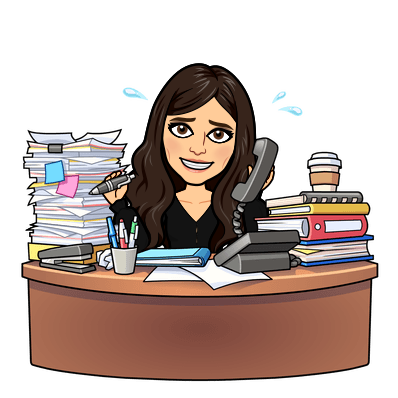
Miss Pattison

Mrs Fox

Mrs Hunter
Digital leaders
Digital Leaders is a computing club with the aim of educating students about a whole host of online skills in the hope that they can go on to become Digital Leaders in their classroom. Being a Digital Leader means children may be asked to help around the school with various technical problems as well as educating students and teachers about skills they may need in the future.
We also invite some of our past pupils to come back and teach our new Digital Leaders. Here they help the children and pass on their knowledge and skills which have they learnt. This also gives our children something to aspire to in the future and again follows our vision of: Being unique: believing, achieving and succeeding together.
Meet our digital leader helpers
 Charlotte |
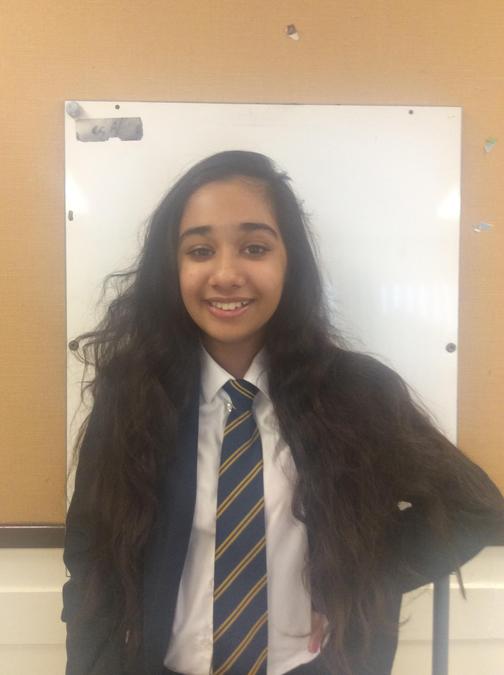 Hibah |
 Chloe |
Meet our Digital Leaders
Here are some Apps which we use in our classrooms. You can even try them at home.
 |
 |
 |
 |
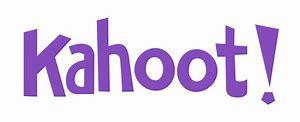 |
 |
 |
|
 |
 |
Some examples of our 'Window the The World' creations
Here is one of our poems written and performed by one of our fabulous Y6 children. We were learning about Muhhamad Ali and we were inspired by his beliefs of freedom. We then tweeted this video to Muhammad Ali's daughter and she replied thanking us for our lovely work. We hope you enjoy it.
We love using our iPads and apps. Here are somethings we have created using them.
Here we have news reports from Year 6 about the famous sinking of the Titanic. We have used iMovie and Do Ink Green Screen.
Do you want to start programming at home?
These free apps are great for tablets
![]() Kodable
Kodable
![]() Daisy the Dinosaur
Daisy the Dinosaur
![]() Cato's Hike
Cato's Hike
![]() Scratch JR (a start to programming for our Infant children)
Scratch JR (a start to programming for our Infant children)
![]() Hour of Code
Hour of Code
If you have a computer or laptop with internet access you can get a free download of the programming software Scratch that we will be using in school at
http://scratch.mit.edu/scratch_1.4/
Highly addictive! Watch out Bill Gates!
